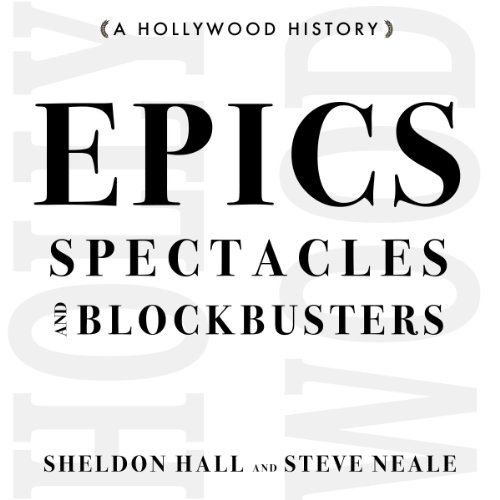
Epics, Spectacles, and Blockbusters: A Hollywood History
Contemporary Approaches to Film and Television
カートのアイテムが多すぎます
カートに追加できませんでした。
ウィッシュリストに追加できませんでした。
ほしい物リストの削除に失敗しました。
ポッドキャストのフォローに失敗しました
ポッドキャストのフォロー解除に失敗しました
聴き放題対象外タイトルです。Audibleプレミアムプラン登録で、非会員価格の30%OFFで購入できます。
¥2,800 で購入
-
ナレーター:
-
Brian E. Smith
このコンテンツについて
The pantheon of big-budget, commercially successful films encompasses a range of genres, including biblical films, war films, romances, comic-book adaptations, animated features, and historical epics. In Epics, Spectacles, and Blockbusters: A Hollywood History authors Sheldon Hall and Steve Neale discuss the characteristics, history, and modes of distribution and exhibition that unite big-budget pictures, from their beginnings in the late nineteenth century to the present. Moving chronologically, the authors examine the roots of today's blockbuster in the "feature," "special," "superspecial," "roadshow," "epic," and "spectacle" of earlier eras, with special attention to the characteristics of each type of picture.
In the first section, Hall and Neale consider the beginnings of features, specials, and superspecials in American cinema, as the terms came to define not the length of a film but its marketable stars or larger budget. The second section investigates roadshowing as a means of distributing specials and the changes to the roadshow that resulted from the introduction of synchronized sound in the 1920s.
In the third section, the authors examine the phenomenon of epics and spectacles that arose from films like Gone with the Wind, Samson and Deliliah, and Spartacus and continues to evolve today in films like Spider-Man and Pearl Harbor. Hall and Neale consider advances in visual and sound technology and the effects and costs they introduced to the industry.
Scholars of film and television studies as well as readers interested in the history of American moviemaking will enjoy Epics, Spectacles, and Blockbusters.
©2010 Wayne State University Press (P)2013 Redwood Audiobooks

